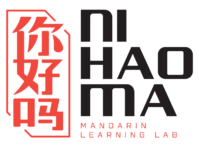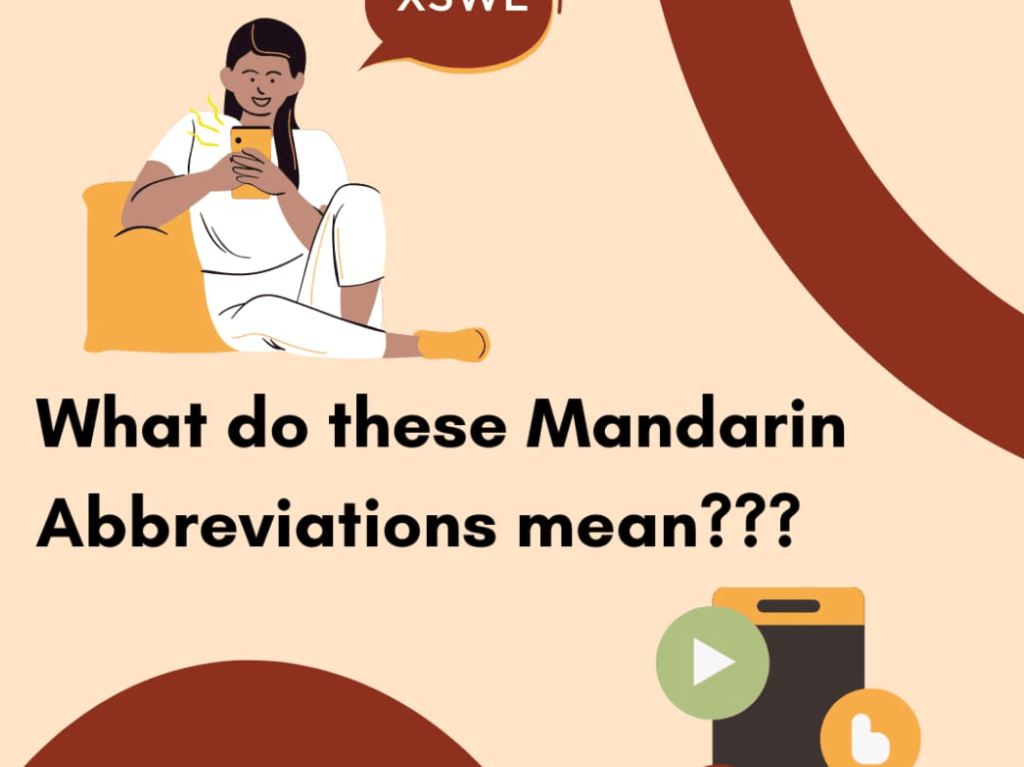Introduction HSK 1 Key Grammar Points for Beginners
Mastering the basics of Mandarin grammar is essential for anyone preparing for the HSK exam (Hànyǔ Shuǐpíng Kǎoshì). In every language, the first level is crucial for learners to demonstrate their foundational language skills. So is HSK. This article will delve into the key grammar points required to excel in HSK 1, ensuring you have a solid understanding of Mandarin grammar basics.

Basic Sentence Structures
Understanding basic sentence structures is the cornerstone of learning any language. For HSK 1, focusing on simple sentences, yes/no questions, and negative sentences is imperative.
Simple Sentences: Subject + Verb + Object (S+V+O)
In Mandarin, the most common sentence structure is Subject + Verb + Object (S+V+O). Here are a few examples to illustrate this:
- 我爱你 (Wǒ ài nǐ) – I love you.
- 他吃苹果 (Tā chī píngguǒ) – He eats apples.
- 她学习汉语 (Tā xuéxí Hànyǔ) – She studies Chinese.
Yes/No Questions: Subject + Verb + Object + 吗 (ma)?
To form a yes/no question in Mandarin, simply add 吗 (ma) at the end of a statement. For example:
- 你喜欢中国吗? (Nǐ xǐhuan Zhōngguó ma?) – Do you like China?
- 他是老师吗? (Tā shì lǎoshī ma?) – Is he a teacher?
- 她会说英语吗? (Tā huì shuō Yīngyǔ ma?) – Can she speak English?
Negative Sentences: Subject + 不 (bù) + Verb + Object
Negating a sentence in Mandarin involves placing 不 (bù) before the verb. Examples include:
- 我不喜欢苹果 (Wǒ bù xǐhuan píngguǒ) – I don’t like apples.
- 他不是医生 (Tā bú shì yīshēng) – He is not a doctor.
- 我们不学习英语(Wǒmen bù xuéxí Yīngyǔ) – We don’t study English.
Key HSK 1 Grammar Points
Understanding pronouns, measure words, and adverbs of degree is vital for constructing meaningful sentences in Mandarin.
Pronouns: Personal and Possessive Pronouns
Pronouns are essential for referring to people and things. Possessive pronouns are formed by adding 的 (de). Here are the basics:
| 我 (wǒ) – I/me | 我的 (wǒ de) – my/mine |
| 你 (nǐ) – you | 你的 (nǐ de) – your/yours |
| 他/ 她 (tā) – he/she | 他的/ 她的 (tā de) – his/her/hers |
| 我们 (wǒ men) – we/us | 我们的 (wǒ men de) – ours |
| 他们/ 她们 (tā men) – they/them | 他们的/ 她们的 (tā men de) – theirs |
Measure Words: Common Measure Words and Their Usage
Measure words are used to quantify nouns. Some common measure words include:
- 个 (gè) – general measure word for people and objects (e.g., 一个人 yí ge rén – a person)
- 本 (běn) – for books (e.g., 一本书 yì běn shū – a book)
- 只 (zhī) – for animals (e.g., 一只狗 yì zhī gǒu – a dog)
Adverbs of Degree: Common Adverbs like 很 (hěn), 非常 (fēicháng)
Adverbs of degree modify verbs and adjectives. Common examples include:
- 很 (hěn) – very (e.g., 他很高 Tā hěn gāo – He is very tall)
- 非常 (fēi cháng) – extremely (e.g., 这个菜非常好吃 Zhège cài fēi cháng hǎo chī – This dish is extremely delicious)
Time and Dates
Knowing how to express time and dates is essential for everyday communication in Mandarin.
Days of the Week: Vocabulary for Days of the Week
Here are the Mandarin words for the days of the week:
- 星期一 (xīngqī yī) – Monday
- 星期二 (xīngqī èr) – Tuesday
- 星期三 (xīngqī sān) – Wednesday
- 星期四 (xīngqī sì) – Thursday
- 星期五 (xīngqī wǔ) – Friday
- 星期六 (xīngqī liù) – Saturday
- 星期天/星期日 (xīngqī tiān/xīngqī rì) – Sunday
Dates: Structure for Expressing Dates
Dates in Mandarin follow the format of year + month + day. For example:
- 2024年8月6日 (2024 nián 8 yuè 6 rì) – August 6, 2024
Telling Time: Structure for Telling Time
To tell time in Mandarin, use the structure hour + 点 (diǎn) + minute + 分 (fēn). For example:
- 3点30分 (3 diǎn 30 fēn) – 3:30
- 12点 (12 diǎn) – 12 o’clock
Question Words
Question words are crucial for forming questions in Mandarin.
Who: 谁 (shéi)
- 他是谁? (Tā shì shéi?) – Who is he?
- 你是谁? (Nǐ shì shéi?) – Who are you?
What: 什么 (shénme)
- 这是什么? (Zhè shì shénme?) – What is this?
- 你在做什么? (Nǐ zài zuò shénme?) – What are you doing?
Where: 哪里 (nǎlǐ)
- 你去哪里? (Nǐ qù nǎlǐ?) – Where are you going?
- 他在哪里? (Tā zài nǎlǐ?) – Where is he?
Common Verbs and Usage
Familiarity with common verbs and their usage is essential for HSK 1 success.
To Be: 是 (shì)
- 他是老师 (Tā shì lǎoshī) – He is a teacher.
- 我是学生 (Wǒ shì xuésheng) – I am a student.
To Have: 有 (yǒu)
- 我有一只猫 (Wǒ yǒu yì zhī māo) – I have a cat.
- 他有很多书 (Tā yǒu hěn duō shū) – He has many books.
To Go: 去 (qù)
- 我去学校 (Wǒ qù xuéxiào) – I am going to school.
- 你去哪里? (Nǐ qù nǎlǐ?) – Where are you going?
Practice and Application
Practicing grammar points daily is crucial for mastery.
Daily Practice Tips: Incorporate Grammar Points into Daily Practice
- Flashcards: Create flashcards for vocabulary and grammar points.
- Language Exchange: Practice with a language partner or tutor.
- Daily Journals: Write short entries in Mandarin daily to reinforce grammar usage.
Sample Sentences and Exercises: Provide Examples and Exercises for Practice
- Translate Sentences: Practice translating simple sentences from your native language to Mandarin.
- Fill-in-the-Blanks: Create exercises where you fill in the missing words in a sentence.
- Conversation Practice: Engage in mock conversations using the grammar points learned.
Conclusion
Mastering HSK 1 grammar is the first step towards achieving fluency in Mandarin. By understanding basic sentence structures, key grammar points, time and dates, question words, and common verbs, you are well on your way to HSK 1 success. Consistent practice and applying these key grammar will help you pass the exam and build a strong foundation for further Mandarin learning.
Recap of HSK 1 Grammar
- Basic Sentence Structures: S+V+O, yes/no questions, negative sentences.
- Key Grammar Points: Pronouns, measure words, adverbs of degree.
- Time and Dates: Days of the week, date format, telling time.
- Question Words: Who, what, where.
- Common Verbs: To be, to have, to go.
Stay motivated and practice consistently
Every step you take in mastering these grammar points brings you closer to fluency in Mandarin. Use the tips and exercises provided to integrate these concepts into your daily routine.
Ready to master HSK 1?
Ni Hao Ma offers comprehensive HSK courses for kids, teens, and adults, learn with certified native teachers to deepen your understanding and enhance your learning experience.



